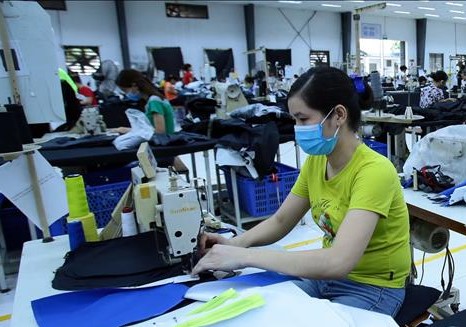Viet Nam’s garment-textile sector is expected to make breakthroughs in 2020 thanks to the Fourth Industrial Revolution.

Other factors, including free trade agreements (FTA) that will take effect in 2020 and the penetration of international brands like Zara, H&M and Mango will also favour the industry’s growth.
The sector has made significant progress, especially in yarn and dyeing, through IT applications, as reflected in improved productivity, accelerated production and reduced labour force.
According to Truong Van Cam, vice chairman of the Vietnam Textile and Apparel Association, more than 2.5 million tonnes of yarn were churned out in 2019, of which over 1.5 million tonnes valued at about US$4 billion were exported.
Fabric output also increased six times and export value clocked up $2.1 billion, he added.
The Fourth Industrial Revolution’s impacts on production mindset and methods are tangible. An example is Đức Quân Investment and Development JSC in the northern province of Thai Binh, which has doubled its yarn output to 17,000 tonnes per year through the application of Big Data in production and management.
Garment 10 Corporation JSC has also used online business management software DIP BMS.NET to better monitor transactions of distribution chains.
Members of the Vietnam National Textile and Garment Group (Vinatex) such as Hoa Tho Textile-Garment Joint Stock Corporation, Viettien General Garment JSC and Nha Be Joint Stock Corporation have joined the trend.
Vinatex General Director Le Tien Truong said technological applications offer workers stable jobs with higher incomes while helping the group double its profits.
Applying the achievements of the Fourth Industrial Revolution has become an inevitable trend. However, this has met a range of difficulties, especially a severe shortage of trained labourers who can use the new equipment.
Humans, particularly technicians, play a key role in the process, said Vinatex Managing Director Cao Huu Chien, adding that the group has mobilised different resources for personnel training.
The Prime Minister has also agreed to upgrade the Hanoi Industrial College for Textile, Garment and Fashion to the Hanoi Industrial Textile Garment University, creating a major personnel training channel for the sector, he said. — VNS





